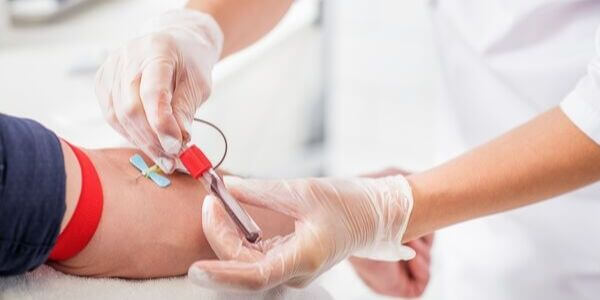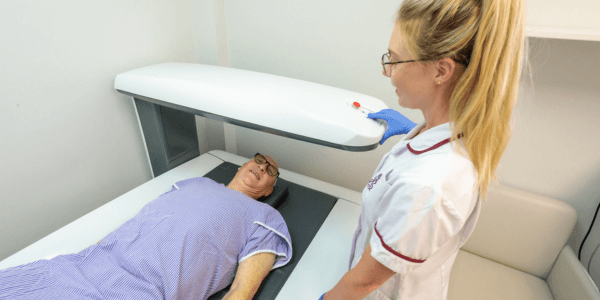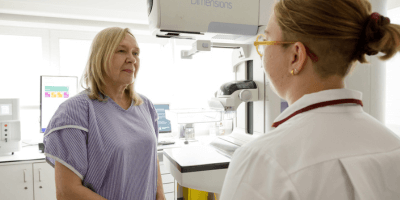
As we journey through life, crossing the milestone of 50 brings about a new chapter in our health and wellness journey. With age, the body undergoes various changes, making certain health checks and screenings more vital than ev
To help inform this, we spoke to Dr Hagar El-Habti, an expert in health checks for the over 50s. The article aims to be a comprehensive guide, tailored for men and women over 50. Here, Dr El-Habti provides a detailed understanding of the key health tests and screenings recommended for individuals over 50, explaining their importance and how they can help in maintaining optimal health.
Risk factors
Understanding and managing risk factors is essential for the over 50s. We look at the different types of risk factors associated with various health conditions – those that can be modified through lifestyle changes and medical interventions, and those that are inherent and unchangeable.
Modifiable risk factors
Blood pressure
Cholesterol
Sugar levels (diabetes)
Smoking
Lifestyle (sedentary, exercise, diet)
Un-modifiable risk factors
Age
Sex (men have higher risks than women)
Family history/genetics
Health checks for the over 50s aim to address all of those things.
It is also important to add that men and women are different and when they age. These differences are particularly pronounced in different aspects of health. As such, the best way to look at this is by focusing on tests that are relevant to either men or women and then those that are relevant to both.

Tests for 50+ men and women
Blood Tests
Most health checks are done by taking blood and will check for a number of conditions to catch them as early as we can. In particular, we check for the biggest killers in the UK, which are:
- Heart disease
- Strokes
- Cancers
Iron levels (blood test)
This test checks for the amount of iron in the blood, which is important for the production of healthy red blood cells. It can indicate conditions like anaemia (low iron) or high iron levels, which can affect overall health. The test also includes a complete blood count to assess the health and quantity of red and white blood cells.
Kidney function test (blood test)
As people age, the risk of kidney disease increases, often due to long-term conditions like diabetes, hypertension, and high cholesterol. These tests are vital for early detection and management of kidney disease, helping to prevent further complications.
Liver function test (blood test)
Liver function can be affected by a lifetime of exposure to toxins, medications, or alcohol. These tests are important for detecting liver damage or disorders, which are more likely to occur or be serious in older adults.
Cholesterol test (blood test)
Monitoring cholesterol levels is particularly important for those over 50, as the risk of heart disease and stroke increases with age. This test is a key part of managing cardiovascular health.
Diabetes test (blood glucose levels)
The risk of developing type 2 diabetes increases with age so regular blood glucose testing is vital for early detection and management of diabetes, which is more common and harder to manage in older adults.
Thyroid function test (blood test)
Thyroid disorders, such as hypothyroidism or hyperthyroidism, are more prevalent in older adults. These conditions can significantly impact metabolism and overall health, making thyroid function tests particularly important for this age group.
Vitamin D test (blood test)
Adequate vitamin D is essential for maintaining bone health, especially in the over-50s, who are at increased risk of osteoporosis. This test helps ensure that vitamin D levels are sufficient to support healthy bone metabolism and prevent bone-related diseases.
Additional:
We could also check tumor markers to detect cancer, for example:
- Bowel cancer (the second most common cause of cancer)
- Carcinoembryonic Antigen (CEA) blood test
- Fecal Immunochemical Test (FIT) – a sensitive stool test to detect blood in the stool. Available on the NHS from the age of 50.
- Pancreatic cancer Ca 19.9 blood test

Urine test
We will conduct a urine test to check for:
- Infections that might be treatable
- Blood in the urine, which might suggest bladder cancer or infection
- Protein in the urine, which might suggest kidney disease
Blood pressure test
This measures the pressure in your arteries as your heart pumps. High blood pressure (hypertension) is a significant risk factor for heart disease and stroke, which become more common as people age. Regular checks can help detect hypertension early, allowing for timely intervention with lifestyle changes or medication.
Heart rate test
Checking the heart rate can reveal irregularities in the heartbeat (arrhythmias) and other heart-related issues. As people age, the risk of heart problems increases, making this an important check.
Physical exam
We do a physical examination, which includes listening to the heart and lungs. We check for normal heart sounds, murmurs (which might indicate valve problems) and check the lungs.
Abdominal examination to ensure there are no masses or aortic aneurysm.
We also look for any lumps and bumps – lymph glands for swelling, which can indicate infection or other health issues. These examinations help in early detection of cardiovascular, respiratory and gastrointestinal conditions, which are more prevalent in older adults.
Women will also receive a breast exam before they conduct a mammogram.
Height and weight check (BMI)
Body Mass Index (BMI) is calculated using height and weight and helps to assess if an individual is underweight, normal weight, overweight or obese. Obesity or being overweight can increase the risk of numerous health problems, including diabetes, heart disease and certain cancers.
Electrocardiogram (ECG)
We will do an ECG if relevant. It’s a test that measures the electrical activity of the heart so it’s particularly relevant if there are symptoms like chest pain, shortness of breath, dizziness or an irregular heart rate. It can detect arrhythmias, heart attacks, and other heart conditions.
Dual-energy X-ray Absorptiometry (DEXA)
A DEXA scan (commonly referred to as a bone density scan), is a medical imaging test used to measure bone density or strength. It’s particularly important for individuals over 50 because it helps in the early detection of osteoporosis, a condition where bones become weak and fragile, making them more prone to fractures.

Eye examination
An eye examination is a series of tests conducted to assess vision and the ability to focus on and discern objects. It also checks for eye diseases and other problems that could lead to vision loss.
For individuals over 50, regular eye exams are important because the risk of eye diseases like cataracts, glaucoma, and age-related macular degeneration increases with age.
Dental health check
We examine the teeth and gums to detect issues such as tooth decay, gum disease and oral cancer. This is because, as people age, they can experience a higher risk of oral health problems, including dry mouth, wear and tear of teeth and periodontal disease. Regular dental check-ups help maintain good oral hygiene, prevent tooth loss, and can also detect early signs of systemic conditions like diabetes and heart disease, which can present in the mouth.
Vaccinations
It’s important for the over-50s to keep up to date with the vaccines, especially the seasonal flu jab.
- Annual flu vaccine
Flu can be so much more severe for older adults, so the annual flu vaccine is recommended. The immune system weakens with age, making it harder to fight off infections and the flu vaccine is reformulated each year to keep up with changing flu viruses. - Pneumonia vaccine
The pneumococcal vaccine is recommended for adults over 50 to protect against pneumococcal diseases. It is given every 5 years. - Shingles vaccine
Shingles is caused by the reactivation of the chickenpox virus and is more common in older adults. It can cause debilitating pain. Once one has had the shingles vaccine, it covers them for life.
Human papillomavirus vaccine to help protect against cervical cancer, penile cancer and warts.
Tests for 50+ Men
For men over 50, we do:
Prostate-specific antigen (PSA)
This is a test for the tumour marker for prostate cancer – the most common cancer in men
Abdominal aortic aneurysm screening
Men aged 65 and over are at risk for abdominal aortic aneurysms so a one-time ultrasound screening is recommended, especially for those with a history of smoking.
Tests for 50+ Women
For women over 50, we test the following things:
Mammogram
Regular mammograms are vital for early detection of breast cancer (the most common form of cancer in women), often before it can be felt. Early detection through mammography can lead to more effective treatment and a better chance of survival.

Pap smear (cervical screening)
This test involves collecting cells from the cervix to check for cervical cancer. Regular Pap smears are important for detecting changes in cervical cells that might become cancerous if left untreated. It’s good to note that early detection of these changes can prevent most cases of cervical cancer.
CA 125 blood test for ovarian cancer
While routine screening for ovarian cancer is not available on the NHS, the CA 125 blood test can be used if a woman is showing symptoms of ovarian cancer. It tests the level of the protein CA 125 in the blood, which can be higher in women with ovarian cancer. However, elevated levels can also be caused by other conditions, so further investigation is usually needed if high levels are detected.
It’s important to emphasise the value of a proactive approach to health. A healthy, balanced diet, exercise and good sleep are crucial to good health. Beyond understanding and undergoing various tests and screenings, the key to maintaining wellness lies in actively engaging with your health journey. This means not only adhering to recommended check-ups but also a dialogue with healthcare providers about your concerns and changes in your health.
More information
- If you think you have inguinal hernia, speak to your GP about possible treatments. (Don’t have a GP?)
Article Sections
Latest Hospital News
Should you wish to speak to our press team, please visit Press Enquiries





